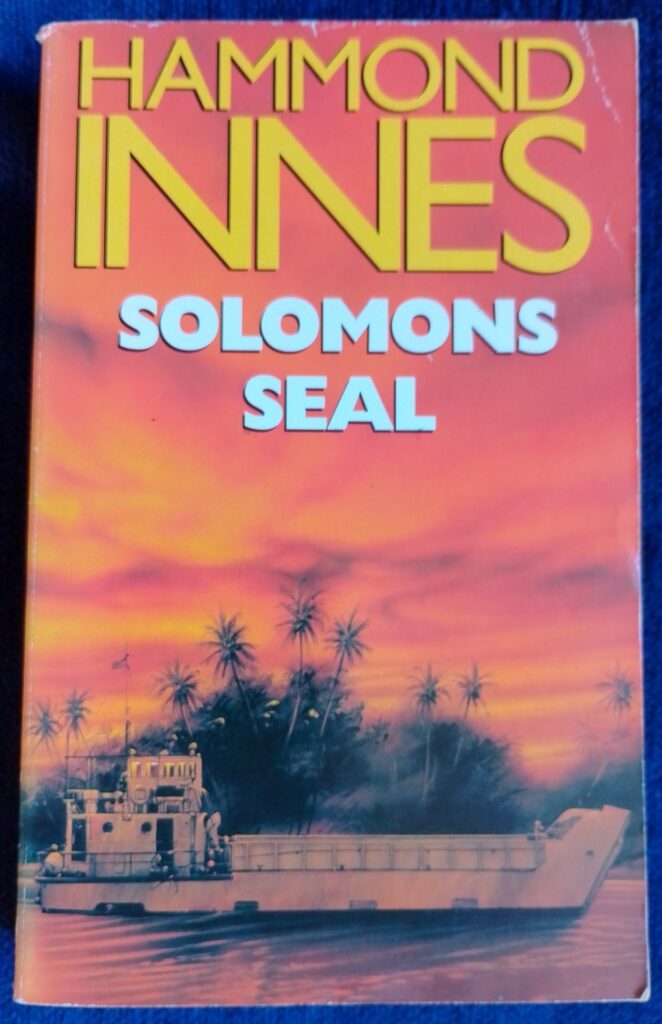First published 1980. Pan paperback, 1997, pp 442, c.125,000 words.
As is often the case with Innes novels, there is some underlying theme connected to a topical issue of the day. In this case it is the insurrection in the Pacific island of Bougainville and the resulting closure of one of the world’s largest copper mines there. The people of that island resented being absorbed into Papua New Guinea when they had traditionally been part of the Soloman Islands group.
Here Innes uses his traditional formula of putting an ordinary man in an extraordinary situation and setting it in some exotic location, often including an element of seafaring. His protagonist is an estate agent, stuck in a dead-end job in 1970’s Britain. He is also an amateur stamp collector. Soon he is off to Australia and the western Pacific. The plot is somewhat convoluted, involving real places, which are described with great authenticity, and real events, which are manipulated to meet the needs of the story. Also, as usual, there is an attractive young woman involved in the plot, although with Innes they are rarely conventional beauties. In this case there is quite an erotic charge that attracts the protagonist to the woman and helps drive the story.
There is a little too much arcane detail regarding stamps in the first half, which stalls the narrative drive in a couple of places, but no one could accuse Innes of not doing his research. He apparently loved the sea, and it shows. His description of Bougainville and the Soloman Sea suggest first-hand experience.
Along the way, the book explores the transition from traditional pacific island cultures to the modern world and the resulting disruption to long-standing local hierarchies and belief systems: change that has left much dissatisfaction in its wake. These themes don’t get in the way of a ripping yarn, however, but add authenticity and interest.
This is an entertaining read that ranks well in the Innes cannon, which for anyone who likes a good thriller, is a strong recommendation. There are no fancy literary flourishes here, but the prose is solid, the story well constructed and cliché free, particularly when compared to many books of this type.
© William John Graham, May 2022

